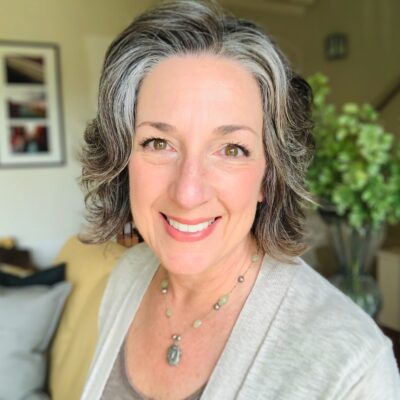Charis Hanshaw - Health, Wellness, and Aging in America
Charis Hanshaw has over 30 years of professional experience in operations management, research, and marketing and communications with private organizations that range in size from boutique marketing consultancies to international research corporations. As an effective problem-solver and caring advocate, Charis returned to higher education later in life for the specific professional development that would facilitate an intentional shift toward work in aging services.
In May 2020 amid the growing global pandemic, Charis completed a Bachelor of Arts degree in American Studies from U.C. Berkeley, an interdisciplinary program with a dual concentration in Sociology and Psychology. In August 2021, Charis completed a Master of Nonprofit Administration degree from the University of San Francisco. Charis currently serves on the Communications Committees for Berkeley Ballet Theater and Ashby Village while exploring new career opportunities in aging services. Charis is committed to applying her comprehensive leadership experience and nonprofit management competencies to mission-driven organizations that promote healthy aging policies and initiatives, empower older adults, and enhance the quality of life particularly for those aging alone and near the end of life.
Area of Concentration Courses
Psychology C126 – Science of Happiness
Public Health 116 – Social, Political, Ethical Issues – Health and Medicine
Public Health 129 - Aging Human Brain
Sociology 139H - Selected Topics in Social Inequality: Health & Wealth
Public Policy 101 – Introduction to Policy Analysis
Thesis
Death Doulas: Remaking the American Way of Death
Charis’s senior thesis research examines the cultural value of caregiving support provided to dying persons by death doulas in America. A brief history summarizes the ways in which prevailing attitudes and practical experiences with death in the United States have broadly changed since the nineteenth century. The youth-obsessed and death-denying culture that has evolved alongside treatment-focused medical advances is discussed, as well as the implications. The death doula has reemerged in America to fill the intimately personal spaces that medicine has largely avoided and institutionalized hospice care is no longer able to deliver. It is within this context that the death doula caregiving approach is studied. Using a case study framework, the first and longest running death doula educational program in the United States is analyzed. A summary of the complimentary death positive movement and the positive cultural impact that death midwifery has the potential to incite rounds out the analysis. The contemporary resurgence of compassionate care for those facing the end of life, with the support of the growing death positive movement, is reinvigorating displaced cultural practices that help dying people retain (or regain) their personhood at arguably the most important time in life: the culmination of living. Death doula care at the end of life has persisted over time both despite and because of structural and cultural barriers. Death doulas contribute meaningful work to our modern society – work that is needed now more than ever to help the dying achieve a good death.
